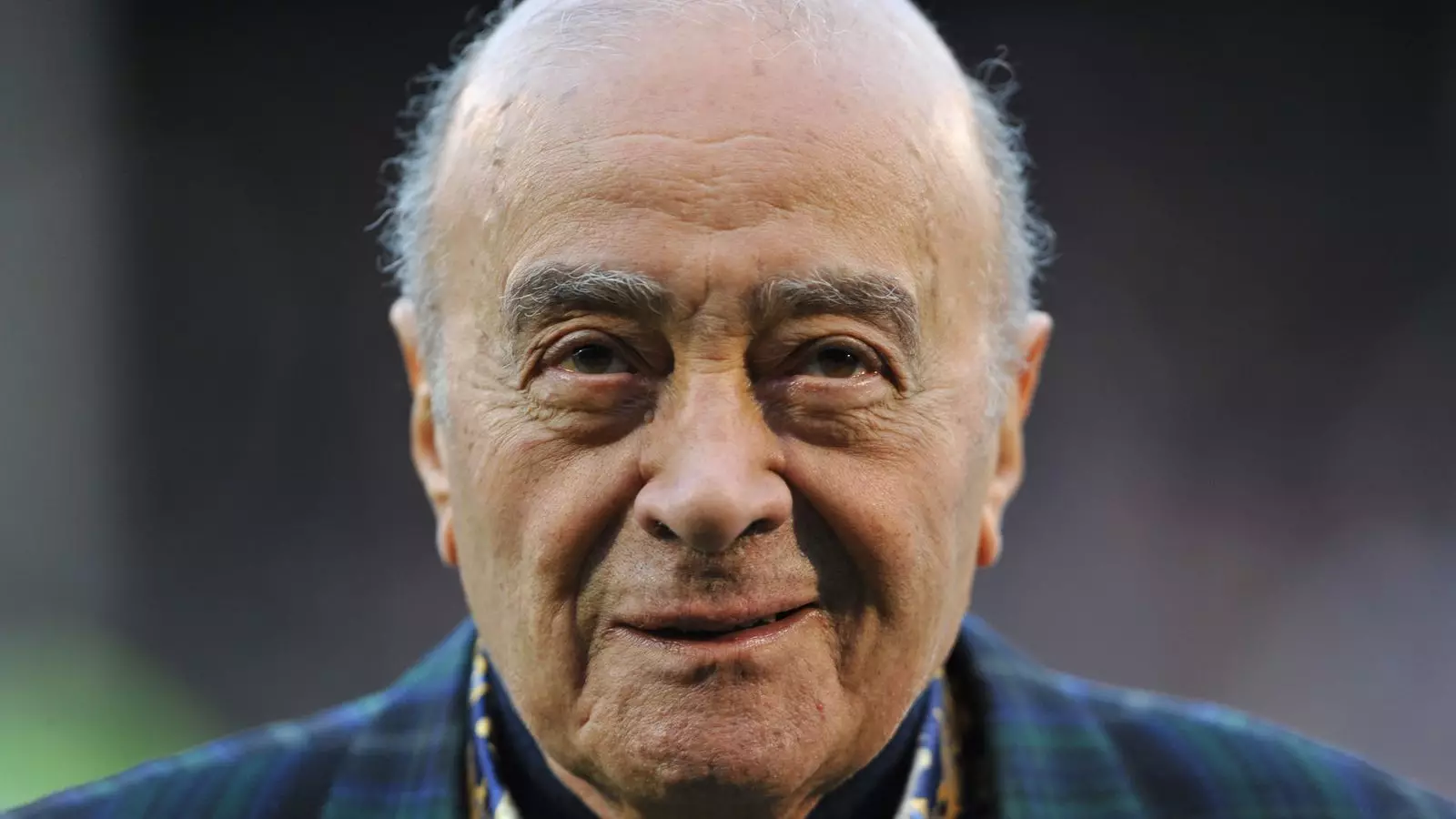The recent allegations against Mohamed al Fayed, the former owner of Harrods, have reemerged in public discourse, shedding light on a turbulent history steeped in accusations of sexual abuse. Al Fayed, who passed away in 2023, has been described as a “monster” by legal representatives of several alleged victims, igniting a heated discussion on accountability and the judiciary’s responses to such serious allegations. With claims from women who state they were victims of his sexual misconduct during their employment at the renowned department store, there lies a pressing question: why were these allegations dismissed by the Crown Prosecution Service (CPS) twice despite the overwhelming volume of claims?
Victims have come forward with harrowing testimonies narrating experiences of rape and sexual assault. They allege that al Fayed, during his tenure at Harrods, selectively targeted women to invite to his executive suite, a practice that evokes implications of predatory behavior. Legal advocates cite that over 150 inquiries have been documented regarding al Fayed’s actions, signaling a significant pattern of abuse deserving serious consideration by the law. Despite the gravity of these testimonies, the legal apparatus faltered, as the CPS concluded that there was insufficient evidence to pursue charges despite two main allegations that had been presented to them.
The first of these accusations arose in 2008 when a 15-year-old girl accused Fayed of indecent assault. Dismissed due to conflicting evidence, the matter was not pursued further. A subsequent allegation of rape in 2013 saw renewed police investigation in 2015 which, regrettably, yielded a similar conclusion: no charges would be filed. The CPS defended its actions by stating that successful prosecution hinges on a ‘realistic prospect of conviction’. However, this rationale does not address the systemic failures that allowed such serious allegations to be relegated to the sidelines.
The inaction of the CPS raises alarms regarding an overarching culture within some law enforcement agencies and legal frameworks that allows perpetrators to evade justice. It suggests a troubling dynamic where claims may be dismissed due to an antiquated interpretation of evidence sufficiency. This lack of progress is compounded by a lack of institutional support for victims, who often find their voices undermined in the face of powerful individuals.
Furthermore, as the victims recently reported a spike in inquiries following a BBC documentary on al Fayed, it raises the question of whether society is finally beginning to take these allegations seriously. It also underscores the necessity for greater transparency and accessibility for victims to report their experiences without fear of disbelief or retaliation.
The Perspective of Law Enforcement
Adding a layer to this narrative, the former head of royal protection, Dai Davies, stated that he had previously warned the Royal Family about al Fayed’s reputed predatory behavior. Davies expressed horror at Princess Diana’s decision to vacation with al Fayed and his family, indicating a potential failure of oversight. This allegation complements claims that there were longstanding rumors about al Fayed that stretch as far back as the late 1990s.
Such accounts from reputable figures should not be ignored. Their awareness of Fayed’s behavior fuels the need for further scrutiny into the way allegations of sexual misconduct are handled, especially when they involve high-profile individuals who can manipulate narratives and access.
The responses across various institutions tell a narrative of discomfort and concern surrounding al Fayed’s legacy. Harrods has publicly expressed its shock and support for those who have come forward, setting up a platform for further disclosures regarding past employees’ experiences. Meanwhile, Fulham FC, a club previously owned by Fayed, has voiced trepidation over the allegations, showcasing a broader unease in the sporting and retail communities alike.
While Buckingham Palace has remained silent on these allegations, such reticence does not shield them from scrutiny. The implications of Fayed’s alleged actions extend into the realms of public trust and safety, necessitating a proactive attitude rather than one of avoidance.
As the dust settles on the allegations against Mohamed al Fayed, it becomes clear that this is not merely a retrospective examination of past behavior; it is a robust commentary on the responsibilities of judicial and institutional entities in addressing sexual misconduct. In an age where victims are encouraged to share their stories, the legal frameworks and organizations must evolve to prioritize accountability. Only through collective action can we hope to dismantle the structures that have historically favored those in power, assuring that justice is not just an ideal but a practiced reality for all victims.


Leave a Reply